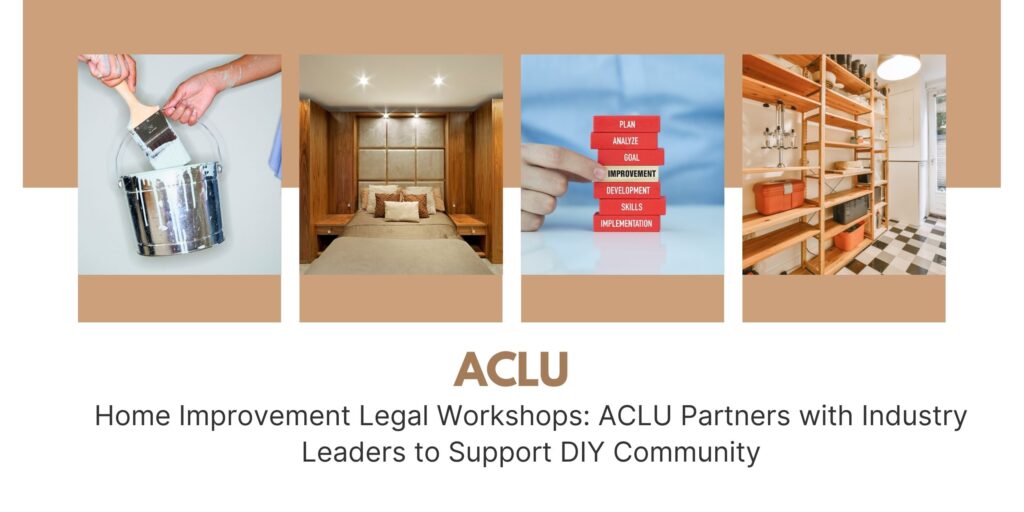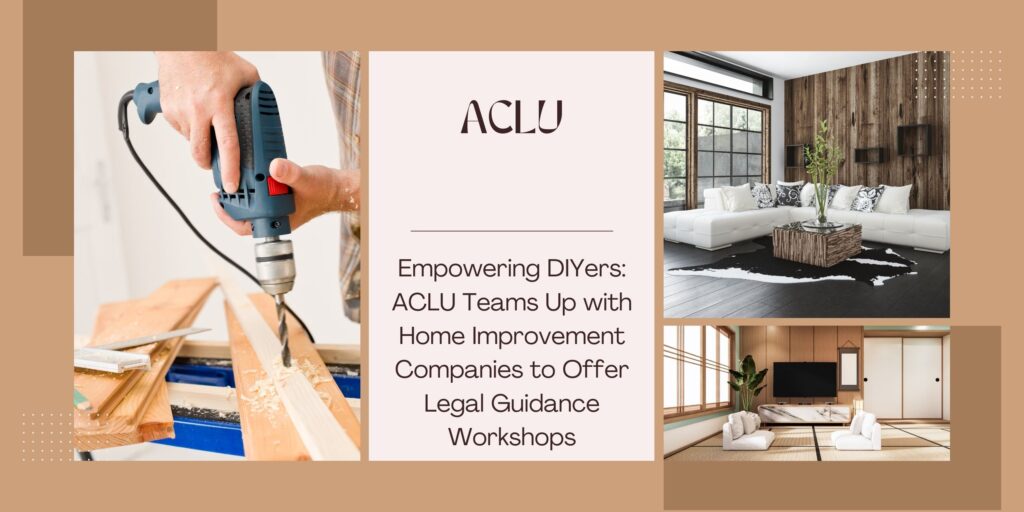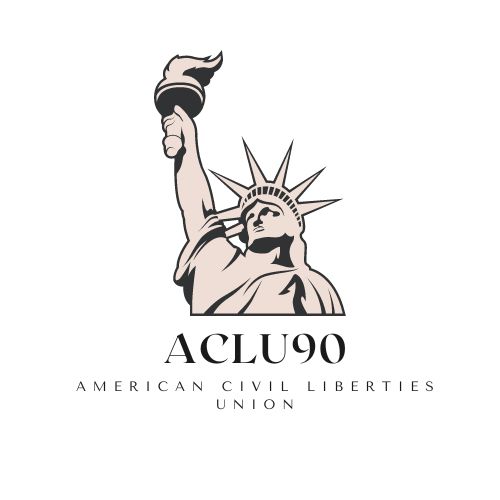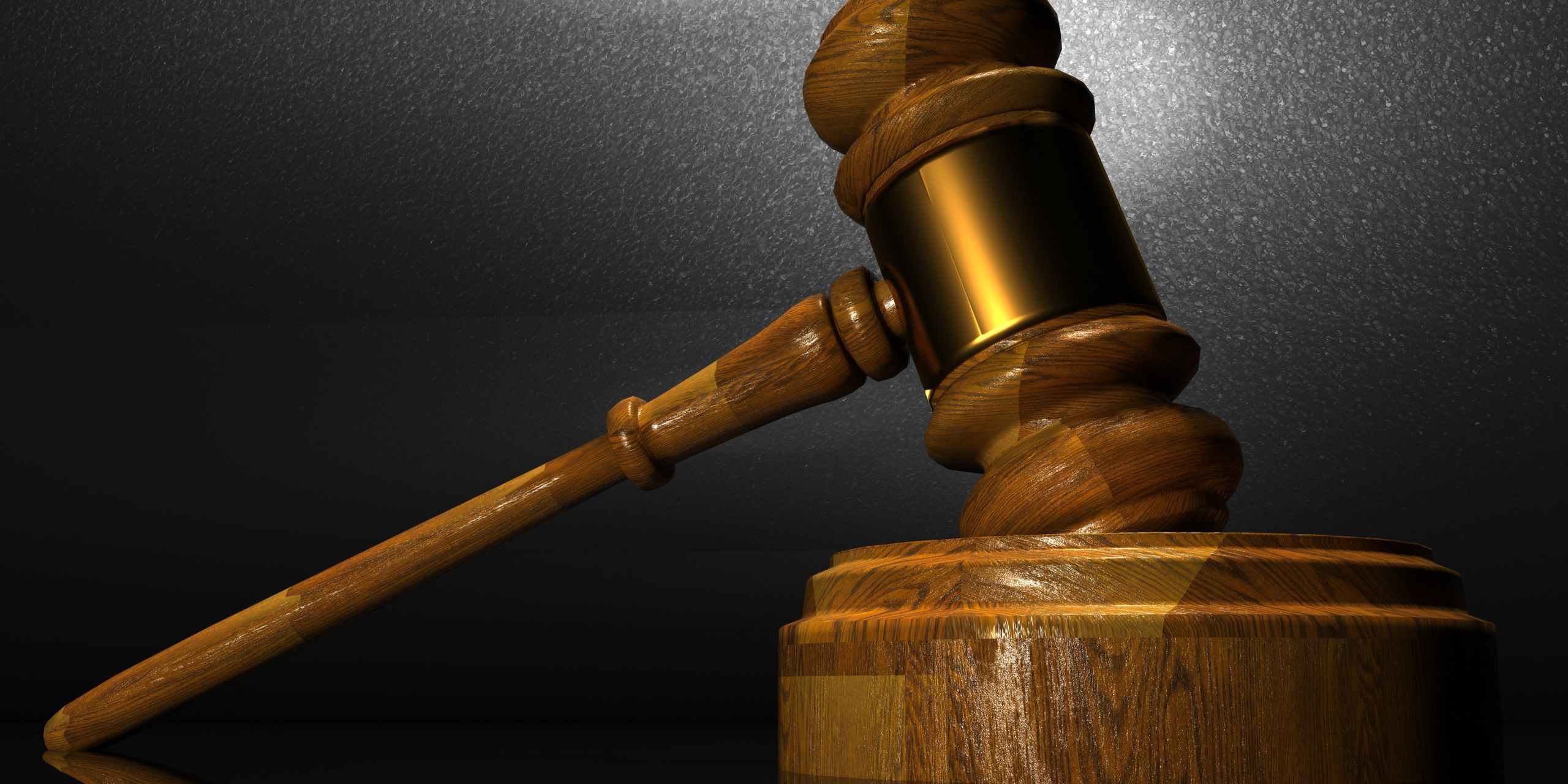In a first of its kind partnership, the American Civil Liberties Union (ACLU) and numerous industry leaders in home repair have teamed up to present a series of legal workshops aimed specifically at the growing DIY community. In order to help homeowners and renters perform home renovation projects safely, legally, and with low danger of breaching local regulations, the workshops attempt to educate them on their rights and obligations while doing so.
Background
A new generation of do-it-yourselfers has emerged thanks to the popularity of DIY reality TV shows and the abundance of information available online. Despite these people’s best intentions, it can be difficult for them to get their projects approved by local authorities due to the maze of building regulations, permits, and zoning laws that must be followed. Costly fines, delays in project completion, and possible legal issues with neighbors or municipal authorities can result from disregarding these regulations.
The American Civil Liberties Union (ACLU) and other home improvement companies have collaborated on a series of courses to provide DIYers with the accessible and dependable legal assistance they need to confidently tackle their projects. These seminars attempt to educate participants so that they can avoid any legal entanglements before, during, and after a home repair project by offering knowledge about local building codes, zoning regulations, and property rights.

Workshop Topics and Structure
The legal seminars will be presented in different cities around the country, with an emphasis on those having a sizable do-it-yourselfer population. The workshops will take the shape of a seminar, complete with talks given by attorneys, group work, and Q&A. Among the many topics included in the curriculum are:
This section will provide an overview of the numerous rules and regulations that govern home renovation projects in different places, including local building codes and zoning ordinances. In this session, participants will learn where to look for and how to read the codes that are relevant to their project and area, as well as the steps to take to get the permits and inspections they need.
Legal considerations of property ownership and limits will be discussed in this section to help do-it-yourselfers avoid conflicts with their neighbors or the law. The rights and obligations of property owners and tenants, as well as other related issues, will be discussed.
Homeowners’ associations (HOAs) and restrictive covenants affect a large percentage of homebuyers. In this section of the seminar, participants will learn how to locate and interpret the local ordinances that govern their home remodeling endeavors.
In this section, we will discuss the significance of ensuring that home improvement projects adhere to the Americans with Disabilities Act (ADA) and other accessibility standards to provide equal housing for all. Participants will get an understanding of the legal ramifications of failing to make their houses accessible to people with disabilities, as well as the particular standards for doing so.
Understanding your rights in regards to privacy is more important than ever in this age of widespread use of smart home technologies and security cameras. The legal ramifications of installing and deploying surveillance technology, as well as the rights and obligations of homeowners and renters in protecting their privacy, will be discussed during this section of the session.
Workshop Pros and Cons
DIY enthusiasts might get a lot from the legal workshops:
Workshop participants are given the tools they need to take control of their home renovation projects by providing them with accurate and up-to-date information about the legal elements of such projects.
Money saved: the courses will teach do-it-yourselfers how to comply with local regulations, reducing the likelihood of penalties, delays, and conflicts that might arise as a result of failure to do so.
Workshop participants can build relationships with individuals who share their passion for do-it-yourself projects and learn new skills through hands-on instruction. Making new connections opens up opportunities for collaboration on future endeavors and the sharing of knowledge and information.
By hosting these workshops, the American Civil Liberties Union (ACLU) is advocating for homeowners’ and renters’ rights and helping do-it-yourselfers find their way through the maze of rules and laws that govern home renovations.
Promotion of local businesses and incentivizing visitors to purchase goods and services from those firms is another benefit of hosting seminars in conjunction with home improvement businesses. Together, we can improve local economies and forge connections between businesses and customers that benefit both parties.

Potential Growth and Prospects
There is great potential for the growth of these legal seminars, given the rising popularity of do-it-yourself home renovation projects. To reach a wider audience and accommodate people who are unable to attend in-person events, the ACLU and home improvement companies may consider providing online materials, such as webinars and interactive tools.
In addition, the workshops might be adapted to meet the needs of particular populations, such as those who are disabled, elderly, or living on a limited budget, giving them with the specialized guidance and materials they need to accomplish their home renovation projects.
Conclusion
A novel strategy for addressing the complex legal landscape of home renovation projects is the ACLU’s engagement with home improvement companies to offer legal training for DIY enthusiasts. These courses have the ability to alter the DIY community, lower the danger of legal issues, and build a more collaborative and supportive atmosphere for home repair enthusiasts across the country by equipping them with the knowledge and resources they need to traverse this terrain.

